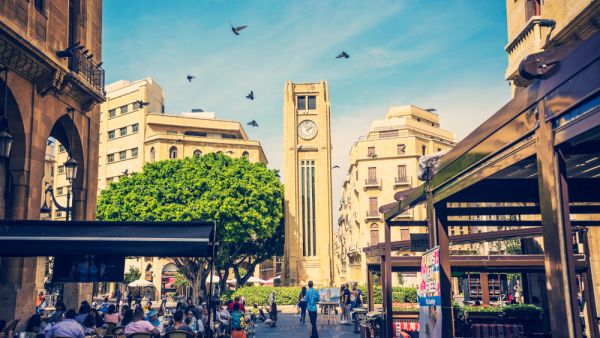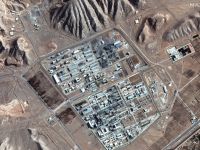A crowd of mostly young men and women of various nationalities streamed into a classic Lebanese apartment with high ceilings and spacious balconies in Furn al-Shubbak last Friday night.
They were coming for an evening of performances - poetry spoken over the strains of an oud, a live painting demonstration, stand-up comedy sets - organized by the open mic group Sidewalk Beirut.
The performers included Syrian rapper Hani al-Sawah and Lebanon’s first transgender model, Sasha Elijah.
But Chams House, the space whose opening the event was celebrating, is intended to be more than a setting for artistic expression.
The space is the new headquarters of Chams Network, a social enterprise organization founded by a small group of young Lebanese, Syrian and Palestinian volunteers. The organization has launched a number of projects among refugee and vulnerable Lebanese populations, including tutoring and mentoring programs for children, Ramadan soup kitchens and vocational training programs for women and men.
But beyond that, the group’s organizers hope the space will take on a life of its own as a cultural center cutting across lines of nationality and religion.
Serene Dardari, one of Chams’ founders, is Syrian and came to Lebanon in early 2011, before the Syrian civil war. Her father worked for the United Nations when she was growing up, and her parents now live in Washington.
{"preview_thumbnail":"https://cdn.flowplayer.com/6684a05f-6468-4ecd-87d5-a748773282a3/i/v-i-0…","video_id":"0275d5a2-6708-43a7-bd64-e4aae81aa813","player_id":"8ca46225-42a2-4245-9c20-7850ae937431","provider":"flowplayer","video":"Do The Yellow Vests Reflect The Broken Dreams of The French"}
But Dardari chose to stay in Lebanon, she said, feeling that she could be more useful here.
She said that through the new space, she and the other Chams organizers hope to break down barriers.
“To me, as a Syrian living in Lebanon, one of the most important barriers is the tension between Syrians and Lebanese,” she said.
“We’re trying to break this barrier between different nationalities and sects in Lebanon through this common space, this safe space where everyone can come and express themselves.”
Chams had a small office in Furn al-Shubbak before, but the space was too constrained to hold the sort of gatherings the organizers envisioned, Dardari said.
When she spotted a beautiful, century-old house on Damascus Street, she said, she immediately resolved that it would be Chams’ new home.
By chance, when she went in to ask about the space, she found the landlord in the process of finalizing the previous tenant’s departure.
“Imagine the catch - perfect, it’s fate,” Dardari said.
The space includes a salon for events like the opening party; a lending library and reading room; a spacious kitchen; offices; a small store selling wares including soap, notebooks and textiles handmade by program participants in Lebanon and Syria; and a clothing bank where visitors can drop off donations.
Fatima Ismail, a Lebanese artist and writer who performed a live painting demonstration at the opening event, said she had been searching for such cultural spaces since she returned to Beirut two years ago after eight years in Saudi Arabia. “At that time, I started to find the places that I’m interested in and everything beautiful around Beirut,” she said.
As for Chams’ goal of breaking down barriers between different groups within the country, Ismail said she believed it was possible.
“Use something we all know: art, music, our Arabic culture - this will be so beautiful and actually this is what we really need ... to bring everyone together,” she said.
Chams’ co-founder, Anthony, who is Lebanese of Palestinian descent and asked not to be identified by his last name, said he hoped the new space would become part of a growing network of like-minded gathering spaces.
“Maybe if we set an example and other safe spaces start popping [up] here and there and we create a network of them - people operating independently but coexisting together and growing together - maybe we would see a better future for this young generation that’s coming up,” he said.
This article has been adapted from its original source.








